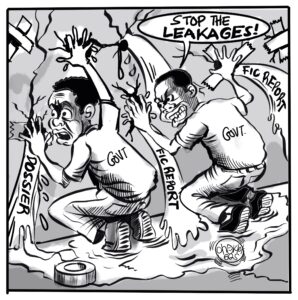UPND Secretary General Batuke Imenda says he has been warned not to talk about matters relating to State House, referring all such queries to President Hakainde Hichilema’s spokesperson Anthony Bwalya.
And Bwalya says matters relating to where the President lives and works are “matters of state protocol and procedure”.
Meanwhile, veteran politician Vernon Mwaanga says it is not unusual for a sitting President to opt not to stay in State House.
Zambia Daily Mail quoted Imenda saying President Hichilema was not going to relocate to State House but would continue residing at his New Kasama residence, now fondly called “Community House”.
When contacted for further clarifications on matters of security, Imenda said he had been warned to never talk about State House functions and that matters relating to State House would be addressed by Bwalya.
“My authority to answer on State House matters is limited. The person who can best give you a clear answer is no other than Anthony Bwalya, the spokesperson for the President. I represent the party not State House sir. That time when we used to enjoy talking to me, we talked everything, it is over. This time around, State House matters are discussed by Anthony Bwalya. I have been strongly warned never to even talk about State House,” said Imenda.
And Bwalya said matters relating to where the President lives and works were matters of state protocol and procedure.
“The short answer to your press query is that where the President lives and works from are both matters of state protocol and procedure. Therefore, these matters will be handled accordingly, that is the short answer to that. I don’t want to say anything else, that is my comment. Please correct that for the record,” said Bwalya.
Meanwhile, Mwaanga said it was not unusual for a sitting President to opt out of staying at State House.
“There are a number of Presidents who don’t live in official residences of the state because they feel more comfortable living in their own houses which they consider more suitable for themselves. So it means he is comfortable with his residence and he will go to State House on duty. At the end of the day, he will go back to his private residency and live there. There is nothing unusual about that. It is not unusual because a number of Heads of States around the world, they have a similar arrangement. They go to work in State House but they stay in their own residences where they still continue to be provided with state security and everything else,” said Mwaanga.
“So, it is a personal decision of the incoming President, there are no hard rules or facts about this in the government regulations or requirements. So, it didn’t come as a surprise to me. The President lives where he feels most comfortable. So, it is not really a big issue for me, it is neither here nor there. The main thing is that he will be reporting for work in State House working from there and performing his government functions. I don’t think there is anything for any one to worry about.”
























